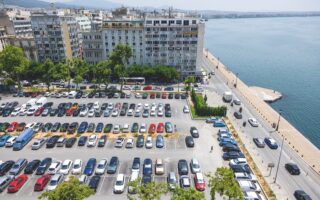Abandoned state assets

The state’s inability to put its real estate assets to good use is a story as old as the hills in Greece, an opportunity that is constantly being lost under mounds of red tape, clientelist relationships and corruption.
The need to make use of all these assets was consigned to the back burner when times were good. Then the economic crisis hit, and the country’s foreign creditors started asking for hard data, so a digital register was finally created of the state’s real estate assets. It appears, however, never to have been updated since. No one today can say with any confidence what the state owns exactly or how much it’s worth.
The Public Employment Service (DYPA, formerly known as OAED) is one of the exceptions of a state agency that got down to the business of creating a map of its properties. This allows us to know that it owns 2,543 properties, of which 580 are suitable for exploitation.
The Social Housing Strategy announced this week by the government to offer young individuals, couples and families some much needed help in another area that is problematic, includes an initiative offering state-owned apartments at affordable rates. The aim, apparently, is to create 2,500 cheap apartments for young people.
Given the extent of the housing problem, we shouldn’t even have to ask whether the scheme is feasible but only how long it will take. It is a matter of credibility for the state to make it happen. And given the pressure from society on this issue, it’s the only hope we have of seeing some progress being made on the issue of charting the state’s property holdings. These are an important resource that has been allowed to go to waste – an outrageous “luxury” for a country like Greece.
The stories behind each unused state-owned property could fill a chapter in the book of Greek madness. Apart from the waste of much-needed resources, allowing these assets to run to ruin also has a negative impact on the urban fabric of our cities.
Let’s start with Athens. The state may not be the only culprit behind the myriad dirty and crumbling buildings we see, but the more it ignores the matter, the harder resolving it will become. Because empty buildings are never devoid of importance: They stand as symbols of political corruption, indifference and failure – all toxic things.





